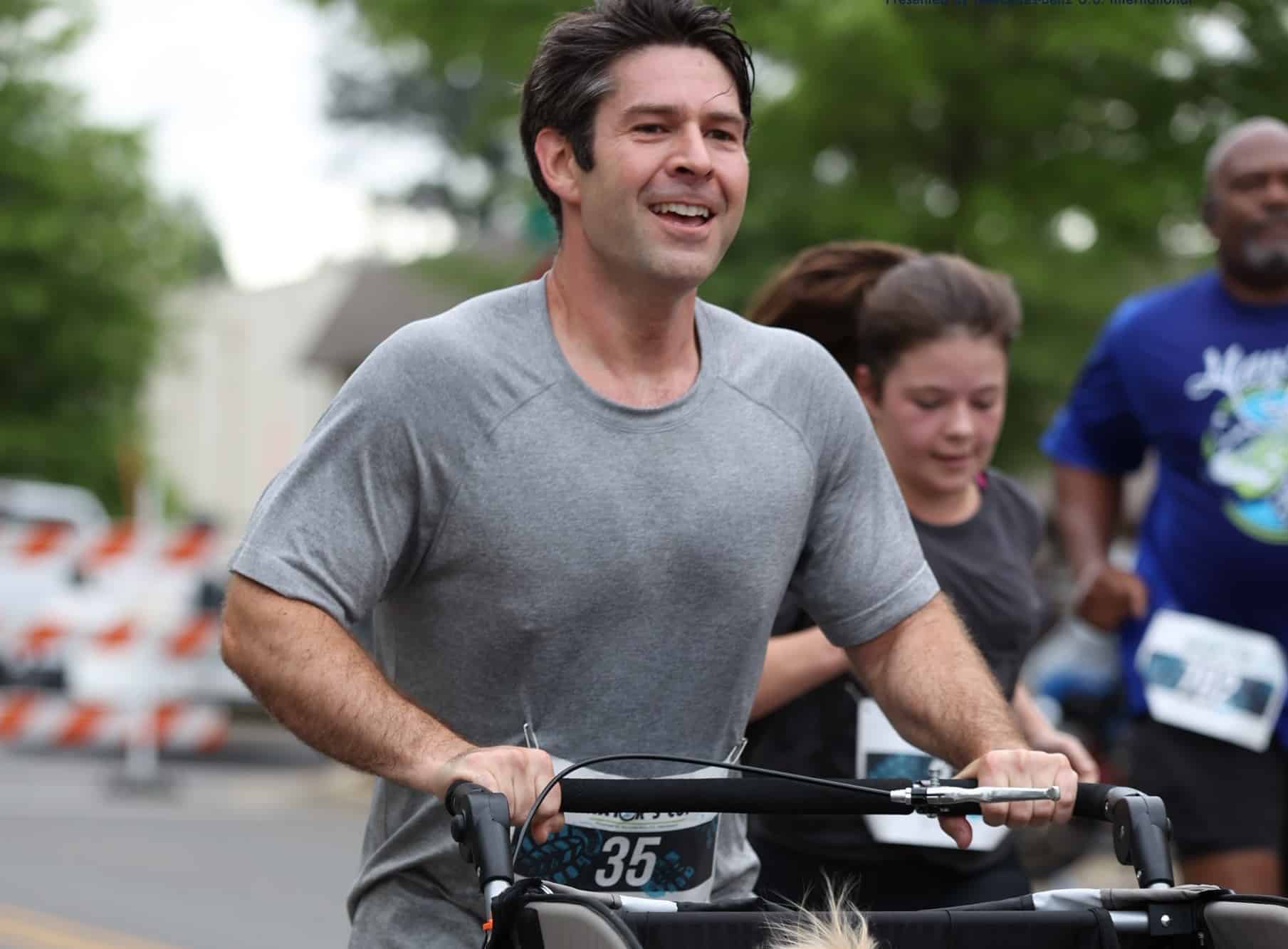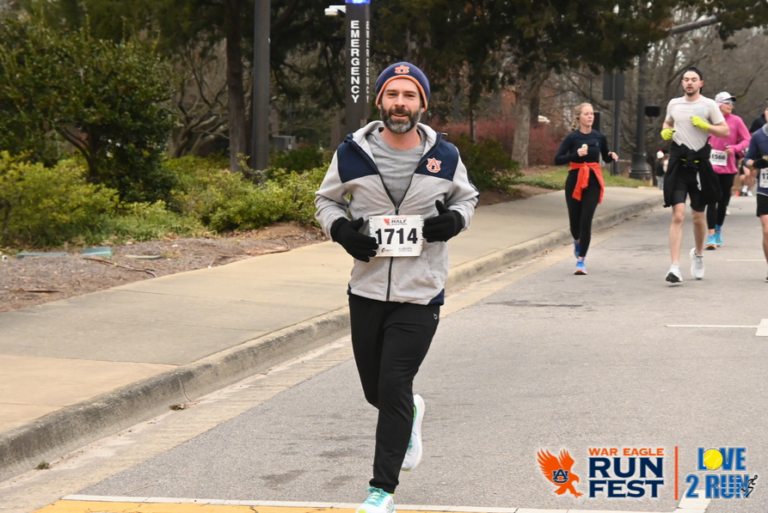What Does DNF Mean in Running and Track Events? (And the Most Common Reasons)
What is a DNF in Running? – A DNF, which stands for ‘Did Not Finish,’ is a term used in running events to indicate a participant who starts the race but does not cross the finish line.
DNF can occur due to various reasons such as injury, illness, fatigue, or other personal circumstances that prevent a runner from completing the event. Whether it’s a trail or road race, keeping a record of these occurrences could help understand patterns and improve recovery strategies.
Understanding the factors leading to a DNF is crucial for runners looking to prepare effectively for their races and avoid this outcome. This preparation can involve choosing the right type of running shoes for the terrain, ensuring proper hydration during the race, and planning a suitable recovery process.
What is a DNF in Track Events and Running?
When you’re engaged in track events, a marathon, or some other running event, the term DNF stands for “Did Not Finish.” It’s used when a participant is unable to complete the race due to various reasons such as injury, pain, illness, or even dehydration. If an accident occurs or you experience an overwhelming sense of discomfort, you might end up with a DNF status.
During a race, maintaining the right pace is key, but sometimes, conditions like extreme weather can lead to participants quitting the race prematurely; any hope of breaking a personal record, winning a medal, or even merely reaching the finish line vanishes. While it’s always a tough decision, knowing when to prioritize your health over competition is crucial.
In some situations, you might be disqualified – which is different from DNF because it involves breaking the race’s rules. On the other hand, DNF is more about acknowledging your body’s signals and quitting a race to prevent further harm or when you know continuing isn’t in your best interest. It’s important to listen to your body and make mindful decisions while on the track, as your safety should always come first.
Common Reasons for DNF
Did You Not Finish (DNF)?
It happens to the best out there, and it could be due to a myriad of reasons. Whether you’re a seasoned marathon runner or new to the track, understanding why racers might not complete the event can help you prepare and possibly avoid the same fate.
Injury and Pain
Experiencing an injury during a race is a common cause for not crossing the finish line. Your body may hit its limit, resulting in discomfort or intense pain, leading to a tough decision: should you continue and potentially worsen your injury, or listen to your body and stop?
- Muscle strains: You’ve pushed hard, but so have your muscles, leading to potential strains, especially in your legs.
- Joint issues: Watch out for knee and ankle joints; they’re susceptible to injury when pounding on the pavement.
Health Challenges
Dehydration and illness can often take a runner by surprise. You might start off strong, but if your body lacks proper fluids or you’re feeling under the weather, continuing the race may no longer be safe.
- Overheating: Heat exhaustion isn’t just uncomfortable, it’s dangerous.
- Stomach troubles: Issues here could knock you off your pace or force an unwelcome stop.
Mental Mindset
Your mental state is crucial. Sometimes, your mindset isn’t where it needs to be, and the thought of quitting a race becomes overwhelming. Stress and anxiety are stealthy competitors that can influence your motivation and focus.
External Conditions
External factors also play a role in why you might DNF:
- Weather: Extreme heat or cold can impact your performance.
- Pace: Starting too fast can lead to burnout before the end.
- Accidents: Unforeseen events, such as falls or collisions, are unpredictable variables.
Remember, while finishing is the goal, it’s essential to prioritize your well-being above all else.
| Factors Leading to DNF | Explanation |
|---|---|
| Injury | Physical harm preventing continuation |
| Dehydration | Lack of fluids affecting performance |
| Illness | Health issues arising before or during the event |
| Mental Mindset | Psychological readiness affecting participation |
| Weather | Adverse conditions making the race unsafe |
DNF Rates and Statistics
When you’re following a track event, you might notice a runner doesn’t finish the race. This is often recorded as a “DNF,” which stands for Did Not Finish.
The reasons can vary widely, from injury to disqualification, or sometimes athletes may simply decide not to complete the race if they’re far behind.
It’s not uncommon in large races for a few competitors to have a DNF next to their names. However, each event can have differing rates of DNFs, reflecting the difficulty of the course, the conditions on the day, or the level of competition.
| Event | Approximate DNF Rate |
|---|---|
| Major marathons | 1-2% |
| Ultramarathons | 10-15%, sometimes more |
| Olympic track events | Less than 1% |
Factors Influencing DNFs
The chance of an athlete not finishing a race increases with the distance of the event. Longer distances can lead to more cases of fatigue, injury, or other issues that prevent completion. Weather conditions, such as extreme heat or cold, can also impact the number of athletes who are able to cross the finish line.
If you’re looking at statistics, checking the DNF rates can give you insights into how challenging a particular race was. Remember, behind every DNF is an athlete’s story: whether it’s a lesson learned or a hurdle to overcome in future races.
Impact of DNF on Athletes and Races
When a participant does not finish a race, known as a DNF, it can have a significant influence on both their standing within the race results and their personal goals. Exploring the specific ways in which a DNF affects athletes can provide insight into their mindset and how they might approach future races.
Psychological Effects
DNF – “Did Not Finish” – can weigh heavily on your mental state.
You’ve invested time in training and likely set a personal goal for the race, making the decision to stop or quitting during the event mentally tough. The reasons for not completing a race can vary greatly, and it’s important to understand that DNF rates are influenced by numerous factors such as health issues, preparedness, and external conditions on the race day.
Your mindset and the support from your coach play pivotal roles in how you perceive a DNF. Initially, it may feel like a setback, prompting a critical assessment of your training and race strategy. However, discussing the experience with your coach can provide valuable lessons and potentially strengthen your resolve for future challenges.
Maintaining a healthy approach to quitting can be crucial. Rather than seeing a DNF as a failure, reframe it as a learning opportunity. Reflect on what occurred during the race: were there uncontrollable factors, or are there aspects of your training that need adjustment?
Remember, every race is a journey and a chance for growth. A single DNF does not define your racing career but adds to your experience as an athlete, enabling you to develop a more resilient and adaptable approach for the next start line you face.
Preventing DNFs
To keep you from a dreaded Did Not Finish (DNF) at a race, whether it’s a 5k, marathon, or an ultramarathon, focusing on effective training strategies and race day preparation is crucial. It’s about building the right form and endurance, while also ensuring that you don’t push yourself to the point of injury.
At times, even the most well-prepared runner could face symptoms that might lead to a DNF during a grueling half marathon, 10k, or other event.
Training Strategies
Training is the foundation to prevent a DNF. Coaches often stress the importance of a training schedule that gradually increases in intensity. Here’s what you need to keep in mind:
- Consistency: Stick to a regular training regimen that includes easy runs and long-distance runs.
- Variety: Mix it up with speed work, tempo runs, and hill workouts to improve strength and pace.
- Rest: Incorporate rest days to allow your body to recover and prevent overtraining.
| Week | Easy Run | Long Run | Speed Work | Rest Days |
|---|---|---|---|---|
| 1 | 5 miles | 10 miles | Yes | 2 |
| 2 | 6 miles | 12 miles | Yes | 2 |
| 3 | 7 miles | 14 miles | Yes | 2 |
| 4 | 5 miles | 16 miles | Yes | 2 |
Race Day Preparation
Your race day routine can make a big difference in achieving your target:
- Pacing: Start at a pace you can maintain to avoid burning out too quickly.
- Nutrition: Have a well-tested nutrition plan for before and during the race.
- Mindset: Stay positive and focus on your race strategy from the start line to the finish.
Remember, the key to preventing a DNF is in the balance between pushing your limits and listening to your body’s signals. Happy racing!






![What Is a Turkey Trot? [A 5k Race Before You Stuff Your Face!]](https://yournext.run/wp-content/uploads/2023/01/what-is-a-turkey-trot_featured-768x512.png)